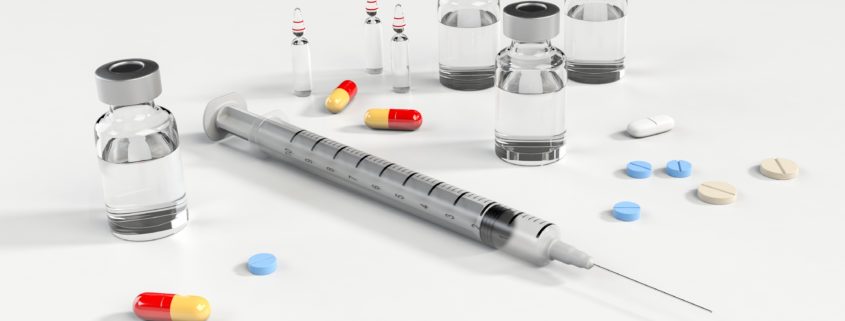An innovative new technology may mean that multiple vaccinations for children could be a thing of the past. Scientists at the Massachusetts Institute of Technology have begun developing a unique, new method that could deliver multiple inoculations in just a single injection.
The advanced technology works by storing multiple vaccinations in micro particles made of a biocompatible, FDA-approved polymer. The micro particles resemble small coffee cups, which can be filled with a vaccination and then sealed with a lid. The polymer can be specifically designed to degrade at certain times, spilling out the drug from the micro particles when needed.
Researchers at the Massachusetts Institute of Technology tested the method on mice, designing the micro particles to release the different drugs at exactly nine, 20 and 41 days following the initial injection. The trials proved to be a success.
This development could mean that, if human trials prove successful, children will need just one vaccine – instead of the 15 injections they currently receive before their fourth birthday.
At present, children are typically required to receive a diphtheria, tetanus, whooping cough, polio, Haemophilus influenzae type b, and hepatitis B vaccine at eight, 12 and 16 weeks of age. This is followed by a pneumococcal injection at eight weeks, 16 weeks and one year of age, a rotavirus vaccine at eight and 12 weeks of age, meningitis type B at eight weeks, 16 weeks and one year of age, a Haemophilus influenzae type b and meningitis C vaccine at one year of age, and an MMR inoculation at one year and three years and four months of age. Children are also now given a flu vaccine as a nasal spray in autumn between the ages of tow and eight and a 4-in-1 pre-school booster at three years and four months of age.
The single vaccine could save vital NHS resources, as well as minimizing the about of jabs that children need to be safe. The new technology could also prove invaluable for children in the developing world, where there is limited access to vaccines. Usually, children in developing countries are only seen once, when they are born. This technology would mean that all their vaccinations would be covered in that single meeting.
As well as aiding in the sheer amount of childhood vaccines needed, the technology could also be a great assistance for those with diabetes or other illnesses requiring regular injections.



